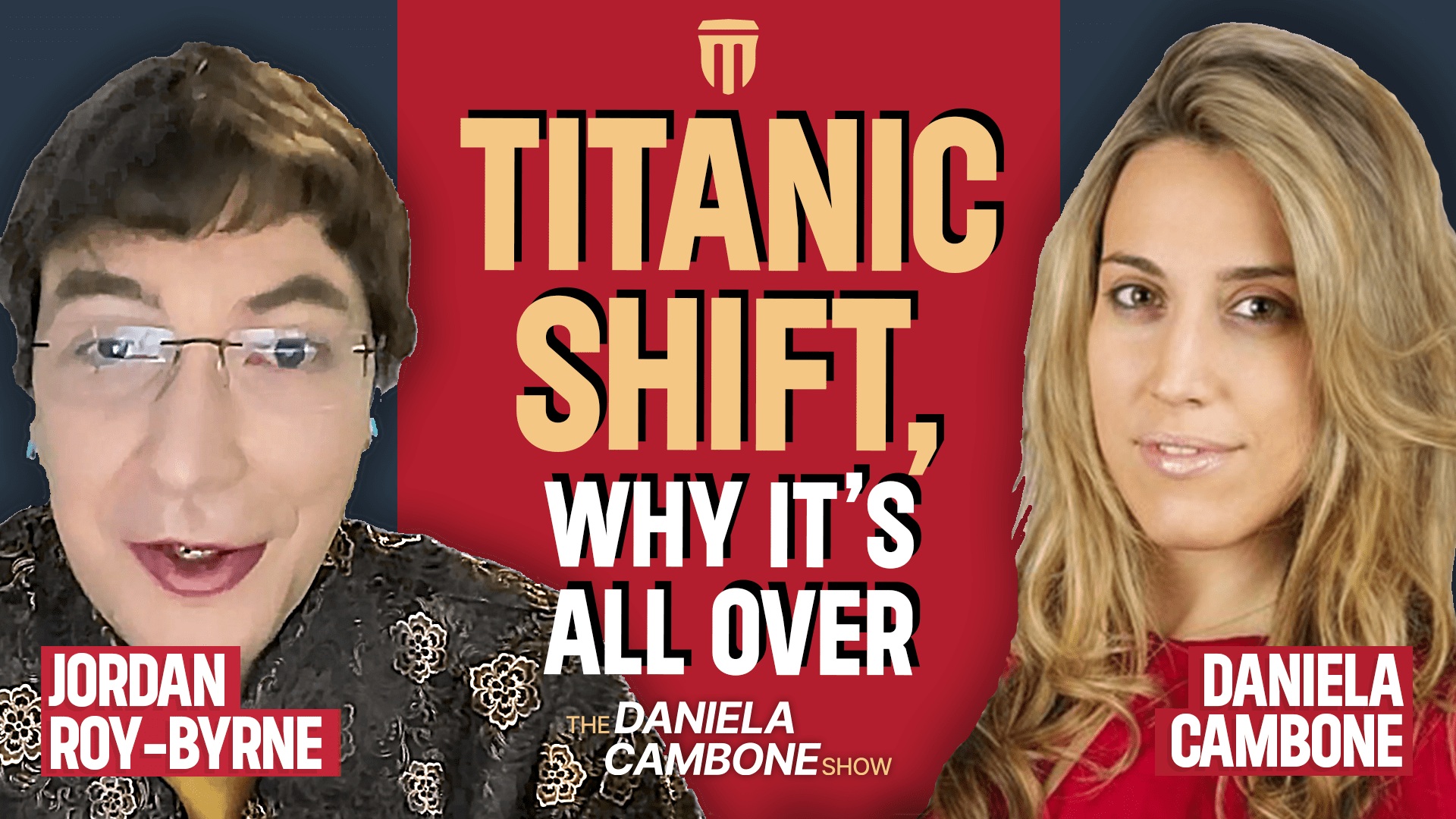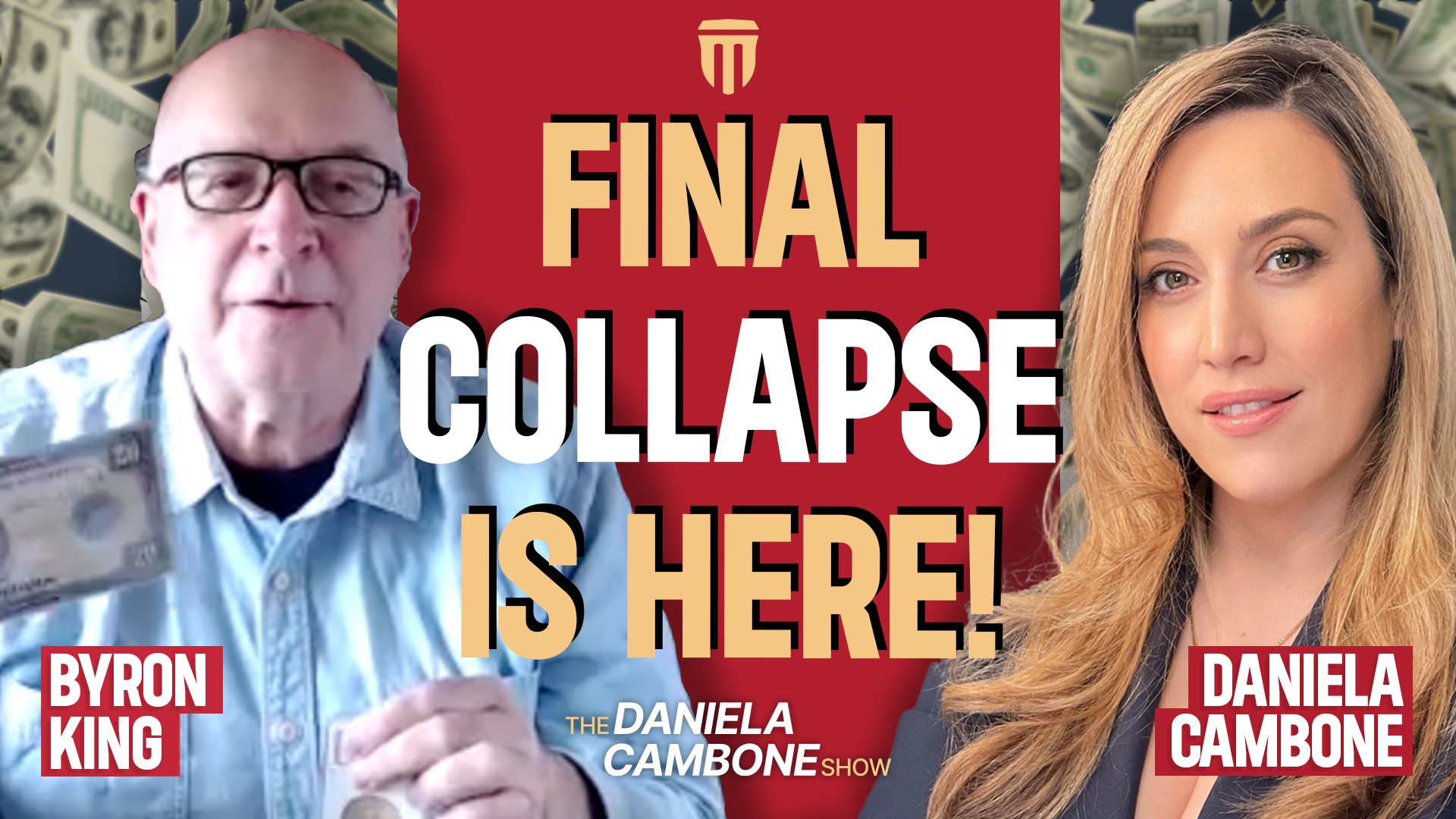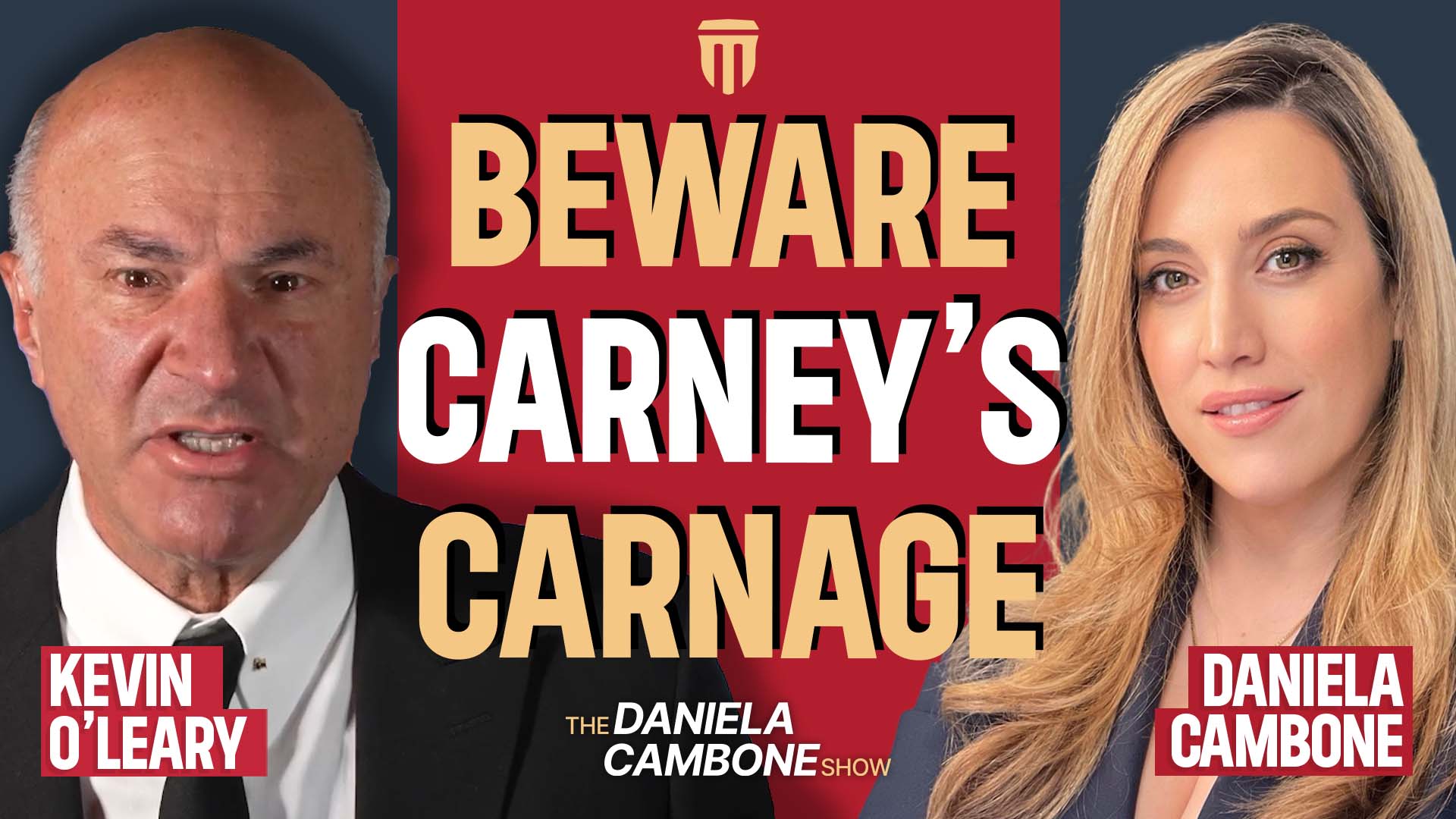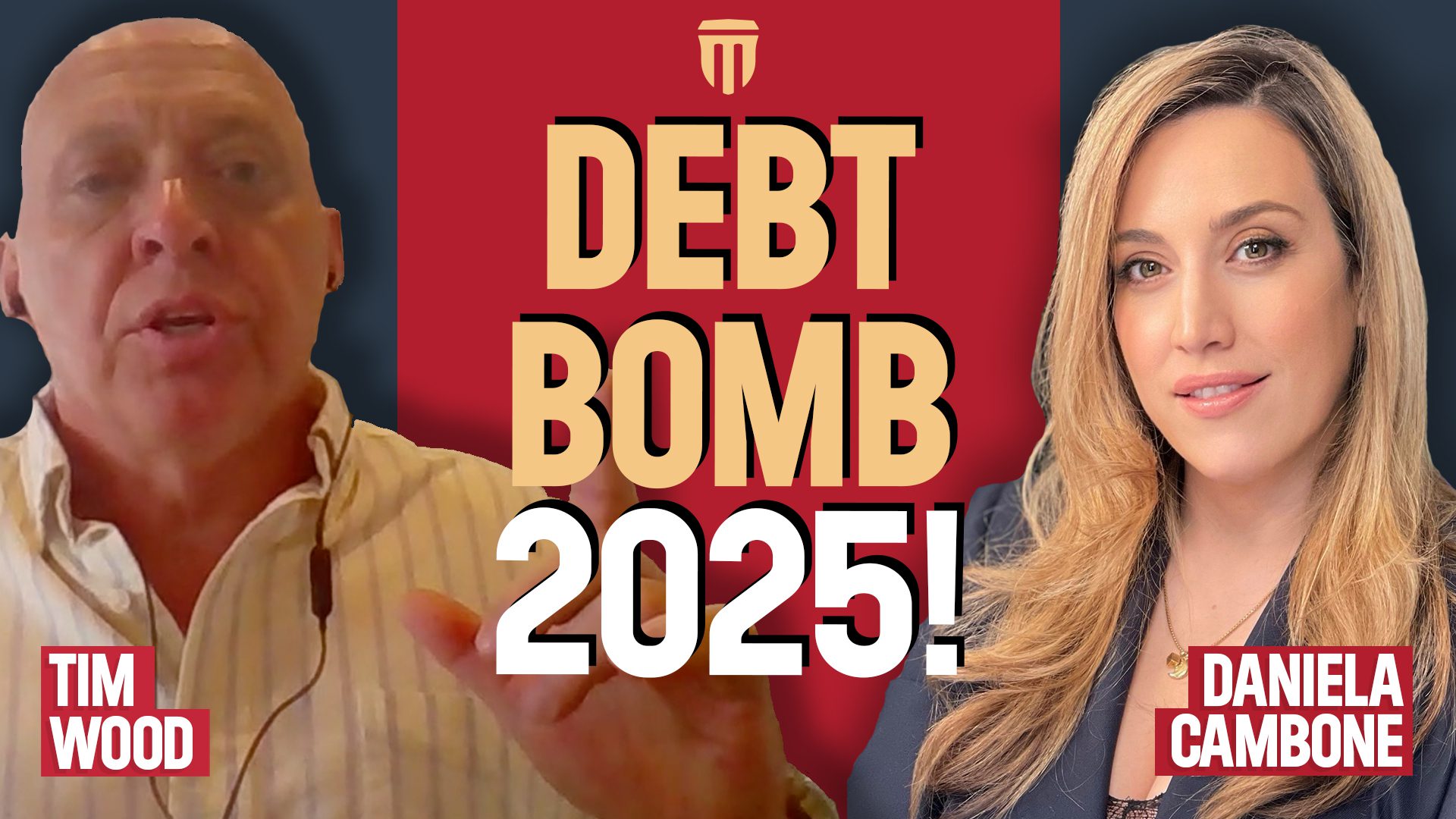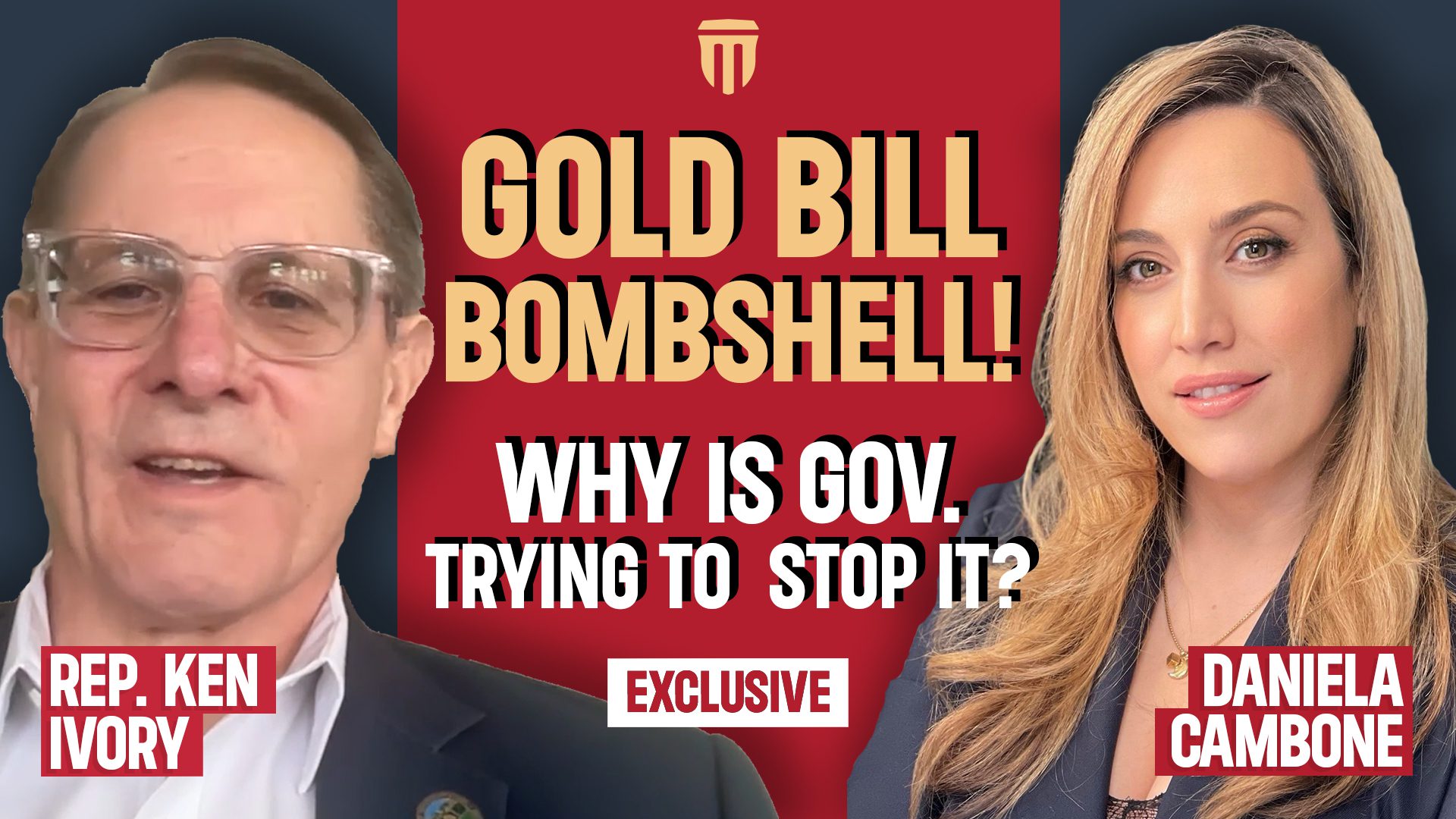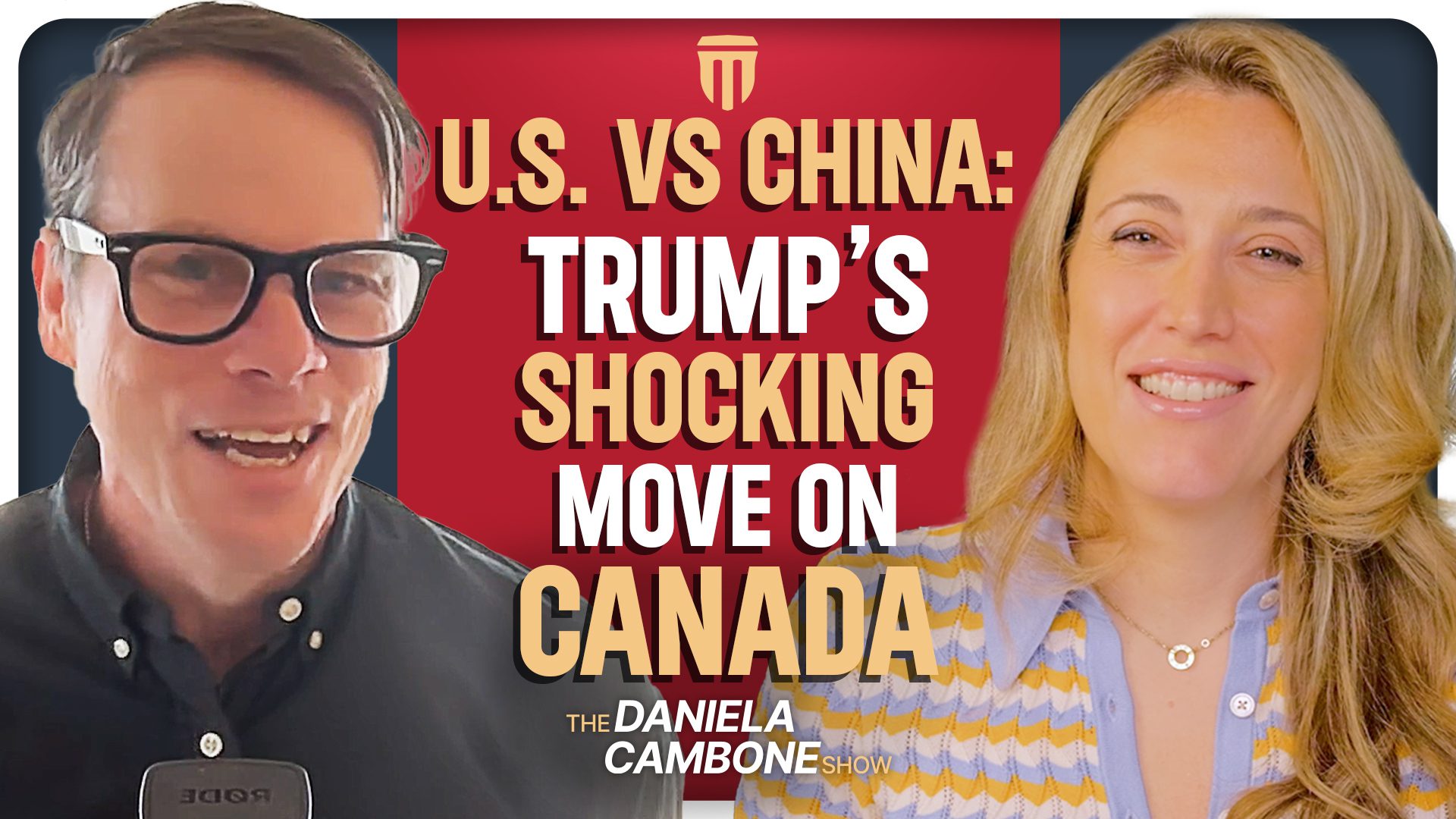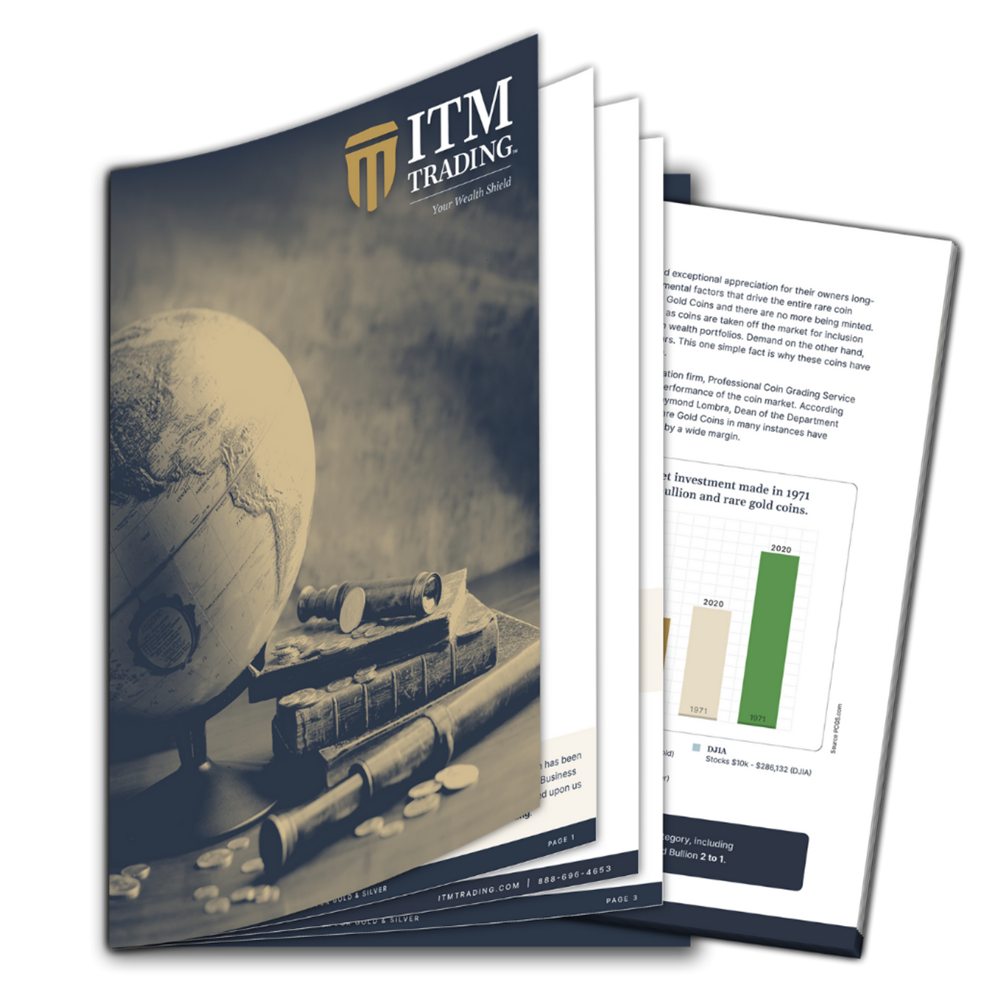US Economist’s Shock Warning: “Biggest Crash in Our Lifetime” is About to Hit, 86% nosedive in S&P
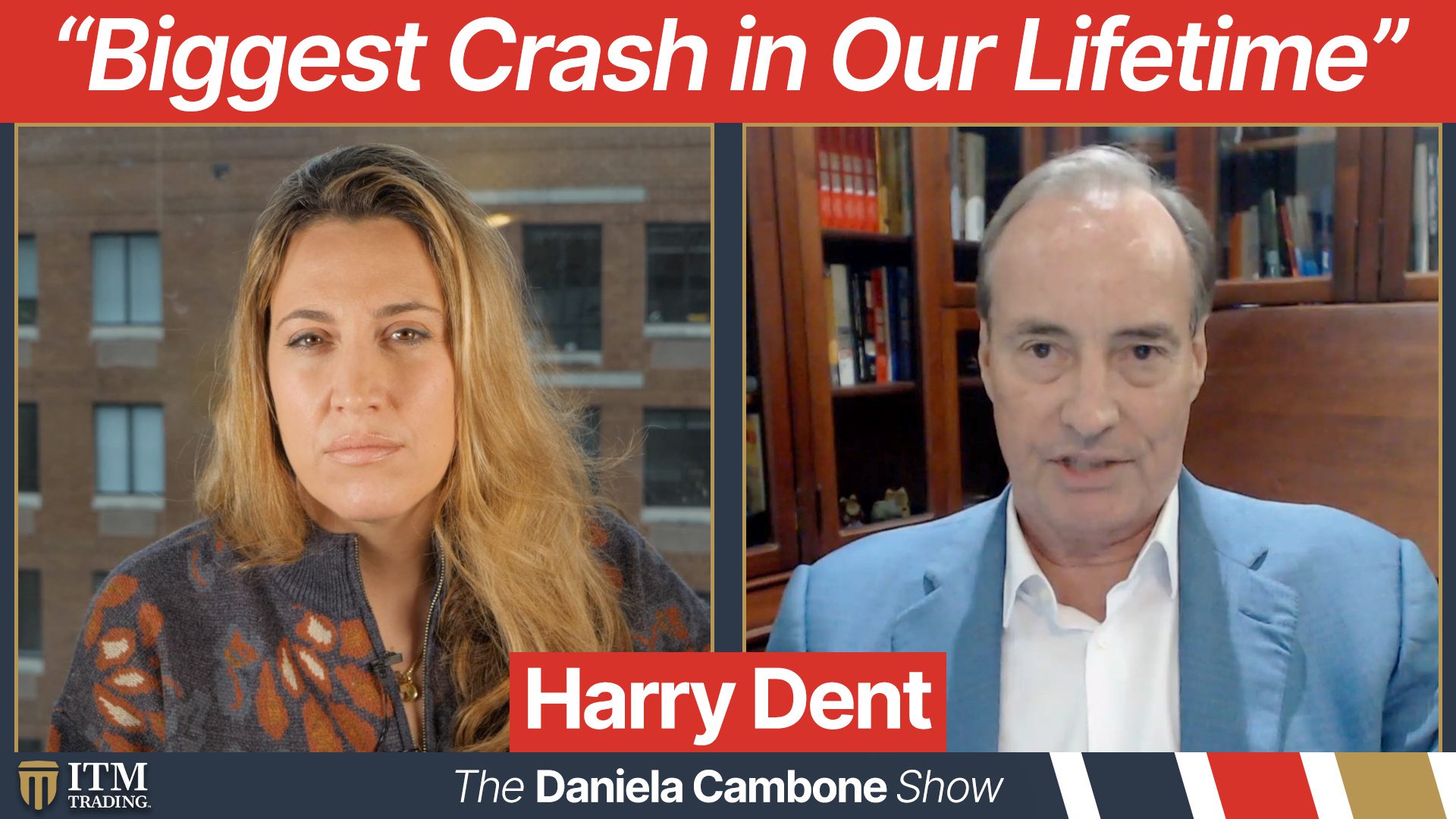
“This time, it’s got to crash 86% for the S&P 500 just to get back to the last low in early 2009,” cautions Harry Dent, the founder of HarryDent.com. In an interview with Daniela Cambone, he paints a bleak picture of the financial landscape for 2024, suggesting that the largest stock market bubble of our lifetime is on the verge of bursting. “This year, we’re going to see the economy down,” attributing it to the Federal Reserve both overstimulating the economy during the pandemic and now engaging in over-tightening. “It takes more like a year and a half to fully hit. So the tightening that peaked in March of 2023 will not fully hit until late 2024,” Dent explains. He is less optimistic about the housing market in 2024, indicating that there might be a prolonged period before people can purchase houses at discounted prices.” Watch the video for more of his insights.
CHAPTERS:
00:00 Introduction and Dire Warning for 2024
03:00 Government Stimulus and Economic Cycles
06:01 The Fed’s Control and Damage Control
07:51 Preparing for the Crash: Avoiding Equities and Real Estate
09:02 Buying Opportunities and Real Estate Market
12:24 Real Estate Market in Canada
13:02 Investing in Cash and Long-Term US Treasury Bonds
15:26 Bitcoin and Cryptocurrencies
17:41 Gold and Financial Asset Bubbles
19:02 Flying and Election Predictions
20:42 Conclusion
TRANSCRIPT FROM VIDEO:
00:09
Hi, this is Daniela Cambone. Welcome back to the Daniela Cambone show here on ITM Trading. Well, my guest today says 2024 will have you see the crash of your lifetime. I don’t know why I am smiling saying this because this is an extremely dire warning, but please welcome to the show, Harry Dent of harrydent.com is the founder of HS Dent Research. Harry, so good to see you again. Happy.
00:35
2024, can I say that? Happy 2024. Good to be back, Daniela.
00:42
Okay, so I’ve seen you with the other interviews, your dire warning for 2024 saying, we’re gonna see the crash of our lifetime. Why, what makes you say this, Harry? Why is this time different than the others? Well, first thing, we’re in the only kind of industry and sector of the economy where people don’t like a good sale. And so that’s…
01:06
what this is gonna be for people. We’ve had a long, the greatest boom in history. I alone saw that strongly in the early to mid 80s when people thought we would never be able to compete with Japan and Asia was gonna roll over us. And then the boom continued to 2007 when the baby boom generation, which again, very simple equation, would peak in their spending on a 46 year lag in peak numbers. That happened and then we had 2008.
01:34
which was the first serious downturn to follow that generation peaking and that should be. But what happened was the downturn was so severe that government said panicked and just started printing money and they printed the first trillion, you know, in 2009. And you know, I’m telling you, I know what they were thinking, the Federal Reserve, oh, a trillion ought to just get this thing back on track and we ought to be back to normal. They didn’t understand and they don’t, and economists don’t understand that people drive our economy.
02:04
government policies are way down the line and things like that. And the baby boom generation had peaked as a collective generation. And I was saying back in the eighties that 2008 to 2022 to 23 would be a long slowdown, much like 29 to 42 that followed the roaring 20s bubble and bubble period like this. So to me, this is just natural. It’s just cycles. But to economists, it’s kind of like they have an ethos that says
02:34
Oh, our jobs and government job is to never have a recession. And I’m like, what? I mean, that would be like telling humans we can’t sleep. You know, we have recessions historically about the same ratio, 30% or so to waking, you know, is waking to sleep. And so it’s a natural thing to do, but economists have gotten this idea we can’t. So 2008 was scary enough that they’ve just been printing.
03:00
money and I’ll give you exact numbers, okay, up to date, okay? $27.2 trillion, that’s like 1.6 times average GDP over this period, okay? And combined deficit spending and money printing, the money printing was $8. something trillion dollars alone. This has never been done. This is saying that economists and the Federal Reserve…
03:29
know better what’s good for the economy than the economy itself. The economy has no problem booming and then slowing down and restructuring debts and knocking out zombie and failed companies. That what people don’t understand is free market capitalism goes both ways. You not only have to encourage and allow innovation, you have to allow companies to fail and technologies and things to fail that didn’t work and get out of the way so we can keep innovating. So this to me is an economic crime.
03:58
And I think they put this off, I think as long as they can. And what they finally happened here, Daniela, is they stimulated so hard, the one final time, now this is from 2009, 14 years straight stimulus, first time in history, but they went off the charts in the two years following COVID. And by doing that, they created this sudden 9.1% inflation when we were going down, as my numbers said they should, towards 1%.
04:26
And that caused them to say, oh my gosh, you know, then they had to turn around with that inflation and tighten, and they tightened 525 basis points. That’s the most since 1980, 81, which caused the deepest recession since the Great Depression back then. So everybody’s thinking, oh well, the economy can handle this tightening. No, this economy has been stretched now many, many years past the demographic peak.
04:53
which did occur in late 2007. That’s why we had that strong downturn 2008, 2009. That downturn would have gone another year, year and a half longer if they hadn’t stimulated out. And then a technology cycle came in very positive into 2020 and that’s been down since. So the fundamentals are down here. The economy, I’m just telling you, I’ve studied this economy for 40 years now. The economy wants to take a rest. The economy wants to get rid of bad debts and zombie companies.
05:23
And the government and politicians won’t let them. So I say what happened here, because they overstimulated, that was the mistake. And now they over-tighten this tightening. And this is another clear fact that people don’t talk about. It takes basically a year, more like a year and a half to fully hit. So the tightening that peaked in March of 2023 will not fully hit until late 2024. And I think this year,
05:53
we are going to see the economy down because they’ve already put this in motion and it’ll be many months before they turn around and loosen and it’ll be too late. Okay, so couple of things, couple of things. You know what I’m gonna say, cause you hear it all the time, but the Fed won’t allow that to happen. Well, they just tightened, they just tightened 525 basis points in an overreaction to them over loosening. They’re losing control of the car like a…
06:22
16 year old, after driving lessons. So why so much talk about, it looks like Powell did the impossible and we’re gonna get the soft landing. Why the rhetoric from Treasury Secretary Janet Yellen, oh, the economy’s in great shape. Is that damage control for you? What are they masking? What is that? Ask yourself, have these people, either of them, you just mentioned the two big names on the Fed, it doesn’t matter how far you go back, any one of them ever ran a business?
06:52
No, not a single Fed chairman has run a business. Businesses know that you have to grow and then you have to cut back. I mean, I was, my first stint after Harvard Business School was consulting to Fortune 100 companies were getting eaten by lunch by the Japanese. And the second stint was small businesses in California. And all they do is go under and then restructure and cut costs and get meaner and leaner. That’s how the economy actually works. You’re not supposed to boom forever.
07:20
You’re supposed to grow and then restructure and set back and reevaluate and go again. So let’s say your scenario plays out in 2024. I always want to empower people, prepare people, give the folks at home tools and actionable things they can be doing. So your prediction is you wouldn’t be surprised if the S&P would crash 86%. So I’m assuming here you’re staying away from equities.
07:50
Is that a safe, is that a safe? In real estate, okay? Here’s the simplicity. And if you look at the long term charts, this should be a slam dunk. If I was just looking at charts and didn’t know what I was looking at, this would be a slam dunk. All we’re doing, we had a big bubble, both in real estate and stocks at the same time. You gotta remember, the first time, stocks bubbled first in the 2000, when that bubble wore out and crashed, people went right into real estate and bubbled that up in 2006.
08:17
and then that crashed and then everything came down into 2007, eight, and then we would have had a deeper recession without that or depression, okay? So now we’ve had both bubble stocks and real estate artificially boosted this time by massive money. When money gets thrown in the economy, they didn’t send checks in the mail to Homer Simpson. This money bought financial assets directly into the financial markets and then it ends up boosting everything, bonds, stocks.
08:44
real estate, everything, and then you get a giant bubble. Well, bubbles only do one thing. The first bubble in stocks was 2000. It crashed 78% in the NASDAQ, the bubblier stocks, in a boom which was gonna continue, as my indicator said. This time, you know, it’s gotta crash 86% the S&P 500 just to get back to the last low in early 2009. This isn’t erasing the entire boom since the early 80s.
09:13
It just erasing the artificial bubble since 2009, which was not even a natural growth period. It was artificially created. But you wouldn’t be buying a home. You wouldn’t be in US equity. It’s the same thing, homes just go back to the laugh load, 2012. Now here’s the shocker. That’s 50%. Hey, I don’t care about 86% decline in stocks. Most people, everyday people don’t own that much stock.
09:41
What’s gonna kill everyday people is their home going down 50 to 60% just to get back down to recent 2012 prices. What that tells you, Daniela, how big a bubble we just had. And there’s never been one bubble, and I’ve studied everyone in history in the last 20 years since these bubbles started to become a major feature of our economy. Every bubble has burst and they burst drastically. Stock bubbles tend to go down. Again, like 29 to 32.
10:10
89%. That’s a bubble. How long do we, how long would we have to wait for it to become a buyer’s market and housing? Okay. Housing, a longer period. Last time housing peaked ahead of stocks in early February, 2006 and bottomed in mid 2012. It took six years to reach a bottom. On the other hand, in early 2009, when stocks bottomed,
10:38
most of that damage was done and you could have already gotten really good bargains and houses, okay? So it’s gonna take longer for real estate to bottom. There’s gonna be a long period when people can buy houses at bargain prices, but stocks already had the first crash in 2022, only the largest leading index is it barely inked out a new high. That’s creating divergences now. The small caps will never go up another 20% and to make new highs and that will create a huge divergence. It says…
11:06
we ought to be expecting a major long-term top alone. Stocks ought to be over this somewhere between late 2024 and mid 2025, because we’ve already done some shakedown in stocks already. What states do you like if you have to choose a place to live and buy later on? I saw Buffalo was ranked top place this year. Well, you know, there are, including in the Midwest and Northeast, but the…
11:35
the continuation tends to be people moving into the sunbelt, from Southern California, especially Arizona, all the way through Georgia, South Carolina, North Carolina, Florida, et cetera. I mean, we got people moving down to Puerto Rico because of the tax advantages, but actually not that many. So you wanna buy real estate in the areas, the ones that bubbled up the most are gonna burst the most and therefore be the best bargains.
12:03
The fact that they went up more than other areas already shows that that’s where people are moving. So this whole Sunbelt high-end homes are gonna go down more than everyday homes. So you’re gonna get even better bargains. And of course, most baby boomers aging, are gonna prefer quality if they can get it, even though they may not have as many people in their household. I gotta throw on this question for my Canadian audience watching. Do you feel the same happening in the housing market in Canada?
12:31
You know, everyone’s been talking about the Toronto bubble. Yes. When does that? Toronto bubble is as bad as about any bubble in the United States, Australia, where I speak a lot, has bigger real estate bubble than anybody other than China, okay? China is the top bubble, then Australia, then Canada, then the US. So real estate, Canada is gonna feel it more in real estate overall than the US and less probably in stock.
12:58
Talk to me about cash. I’m guessing you love T-bills and gold. Let’s start with how much cash do you wanna hold? Let me tell you what I really wanna hold. I wanna hold the longest term U.S. Treasury bonds. I know we got too much debt, but so does everybody else in the world. We have less debt to GDP, the U.S. than Japan and Europe and all of our developed country rivals, okay? We’re the best house in a bad neighborhood.
13:27
2008 crash when it got to its worst, even gold fell 45%. The only in stocks bottom there in early 2009, real estate, everything went down, only the US long-term treasury bonds went up. So T-bills will preserve your crash when everything else falls. That’s great, because you’re avoiding the losses and then buying at the sale of a lifetime. And here’s what you got to not miss here. This will be in our lifetime.
13:56
And similar to 82 if you go way back, okay? The rare time where you can buy stocks at prices you will never ever see again and not just here, but the up and coming country in the world, China’s done, China’s overbuilt. They’ve got enough empty houses to last them for everybody else that’s ever gonna move to a city because they overbuilt. India is the next China that in the next four decades is going to expand and urbanize.
14:23
In the third world, urbanization is the biggest driver because it makes three times the GDP per capita and demographics are second. India has demographics to grow and it took 1.7 trillion for 1.4 today. China is gonna shrink from 1.4 trillion people to 800 million in the next 50 years. So the best place internationally is India and Southeast Asia.
14:49
And again, the Sunbelt real estate in the United States, upscale homes, which will be the most on sale. And of course the tech stocks will tend to go down and the small caps more, and they’ll be the best bargains to buy. And what we do have in the U.S., we only have one more significant boom and that’s the millennial boom, which is not as long, or does not go as high relative as the baby boom, but the millennials will take us up after this crash.
15:18
into 2037 in the US. So here in the US, I’d like to be most in the NASDAQ and tech stocks, because that’s where we still lead the world. What do you make of the run-up in Bitcoin, of this rush back into Bitcoin? Will it take out its all-time highs here? Yes, not yet, though. Bitcoin to me, I didn’t understand it at first. But what I did, since it was such a big thing and it was getting so much attention, I think
15:45
I kept looking, okay, what’s the parallels of this? Well, the dot-com boom happened exactly like Bitcoin and the cryptocurrencies on a 22-year leg backwards. I have this 39-year demographic boom bust cycle every generation, this 45-year technology cycles with two surges, a growth boom and then a maturity boom in technologies. So that’s what we’ve been seeing there as well. So it’s another reason I favor.
16:12
technology stock and what is the dot com thing. Companies like Amazon, Amazon only became a something in 1997, 98, when it went public at the end of the first tech bubble. And that was the epitome of it. Well, the crypto had led this bubble and they’re not even in the NASDAQ because they’re not allowed. They have their own coins. And what coins are folks, it’s a cheap IPO. We’ve had thousands of startup companies be able to do it cheaply.
16:41
raise money cheaply and be tradable, these coins, it’s a huge innovation. It’s a cheap IPO. Well, that’s good. A lot of innovation, that’s bad. A lot of these thousands of companies are gonna disappear and be worthless. So you got a Bitcoin, ether, Ethereum, all these, the stronger are gonna survive this. It is the next big thing because it’s acting like the last big thing, which were the dot coms, not just the NASDAQ and technology stocks.
17:09
and information technology, it was the dot coms, companies like Amazon. So you’re saying it’s here to stay? Absolutely. Here to stay? Yeah. It is gonna become, I will be dead by that time, but it’s gonna become the global standard for a truly global monetary system. It will be the gold standard for that and it’ll have to be worth a half a million to a million to have that sort of value like gold was in the past.
17:39
Are you bullish gold? I am not bullish gold. I’d say gold’s gonna go a little higher and in the last downturn, gold went up in the early stages, first half of 2008, and then it went down 45%. Now that was a short term downturn and it came back slowly. So gold’s not the worst place to be and if somebody wants to have some, find in case Peter shifts right and we have an inflationary blowout. What I see is in every single.
18:07
financial asset bubble in history, no exceptions, is the financial assets deleveraging and going down that causes a deflationary downturn. Most recessions are not that deflationary, okay? It’s only in the 30s that we saw major deflation, and that’s what we should see coming out of this because financial assets come down substantially. We’ve had a bubble in everything, stocks, real estate, Bitcoin is just the most extreme of those bubbles. So it’ll go down the most.
18:37
and it’ll come out the strongest. So if I had to buy one thing a year or two from now at the bottom of this, it would be Bitcoin, the leading cryptocurrency. All right, Harry Dent, you heard it here. Harrydent.com, three weekly newsletter, don’t miss it. I want to say, you are the contrarians, you are the contrarians, contrarian. So would you be flying Boeing Max-9s now? Yes, I would.
19:04
Airplanes are the safest damn place you can be on earth. Commercial airlines, okay? Not a doctor that’s gone after too many cocktails and his little piper, okay? Commercial airlines is not a safer place to be on earth. So yes, I would fly. There you go, folks. Harry Dent, you can read more stuff, all the good stuff from Harry on harrydent.com. It’s always fun catching up with you. Happy 2024, Harry.
19:33
Happy to you too. This is gonna be an interesting year one way or the other. I can guarantee you that. Oh, let me ask you this. Most important election of our lifetime? Biden’s toast if I’m right. Unfortunately, this is the best thing that could happen to Donald Trump. And I’m not a fan. I don’t disagree with all of his policies, but he’s not the guy I would want in office in this time. But.
20:00
Who knows, but this is, there is no way Biden comes out of this. If we even have a slow economy in coming into election, the incumbent will not get reelected. But if we have what I’m seeing, there’s not a chance. So, it’s going to be very important who gets the Republican nomination. I’m pulling for Nikki Haley myself. All right, we’ll see what happens. We’ll bring you back before then, that’s for sure.
20:26
So be sure to stay tuned to the Daniela Cambone show and you can sign up to stay on top of all these awesome interviews at danielacambone.com. That’s it for me. We’ll see you soon.
20:39
you
SOURCES:
https://twitter.com/HarryDentjr
https://twitter.com/HarryDentjr/status/1737148484069826732
https://www.youtube.com/watch?v=k2VSSNECLTQ
https://www.cnbc.com/2023/03/22/fed-rate-hike-decision-march-2023.html
https://www.wsj.com/economy/central-banking/yellen-says-u-s-economy-on-path-to-soft-landing-21fd2883
https://www.youtube.com/watch?v=m2_4UQcThlU
https://www.youtube.com/watch?v=PgJLkDGaCwo&t=14s
